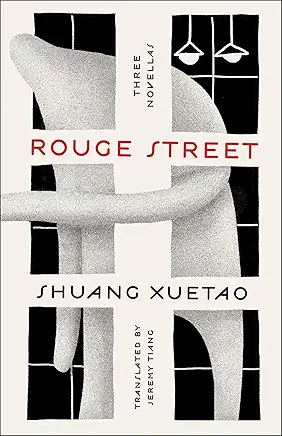
Rouge Street: Three Novellas” by Shuang Xuetao, translated by Jeremy Tiang, presents a collection of interconnected stories that exemplify the complexities of human existence. Each novella offers a unique perspective on themes such as ambition, family, loss, and the search for identity, creating a tapestry of lives that captivated me.
In the first novella, “The Aeronaut,” we are introduced to Gao Likuan, a man who joined the Communist Party to print leaflets but finds himself caught in a web of personal and societal challenges. Xuetao weaves Likuan’s journey, highlighting his role as a master of propaganda and his struggles with self-doubt, Likuan’s story is intertwined with those of Li Zhengdao, an apprentice and Li Mingqi, his uncle. We wonder about the dynamics of mentorship, family loyalty, and fate.
The second novella, “Bright Hall,” introduces the character of Zhang Mo, a storyteller whose life is marked by his father’s alcoholism and his mother’s absence. Through Mo’s perspective, readers witness the complex relationships within his family and their struggles to find solace and meaning. Xuetao deftly explores themes of love, faith, and the power of storytelling, painting a vivid picture of characters searching for connection and redemption.
In “Moses on the Plain,” the final novella, the narrative shifts to Zhuang Dezeng and Fu Dongxin, who navigate the complexities of marriage, parenthood, and societal upheaval. Xuetao examines the repercussions of the Cultural Revolution and its lingering effects on individuals and society. Through the lens of Li Fei, a character whose actions have far-reaching consequences, the author explores themes of rebellion, regret, and the cyclical nature of history.
Xuetao’s storytelling is rich with cultural and historical details, creating a vivid backdrop against which the characters’ struggles and triumphs unfold. The author’s exploration of themes such as ambition, family dynamics, and the search for personal identity adds depth to the stories, inviting readers to reflect on their own experiences and the universal aspects of the human condition.


